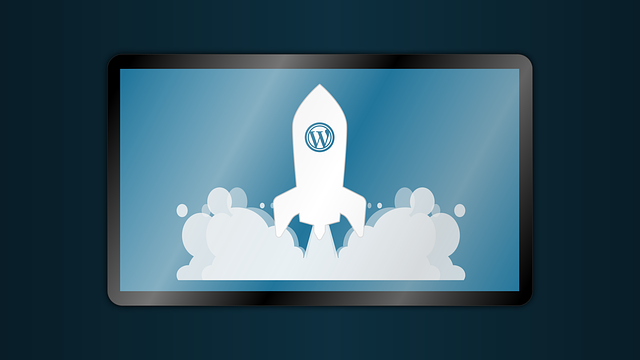
When it comes to building a website, the choice of platform can significantly impact the final product. Two popular categories dominate the market: DIY website builders like Wix and Squarespace, and content management systems (CMS) like WordPress. Each has its strengths and weaknesses, catering to different types of users with varied needs. This blog post will delve into the key differences between DIY website platforms and WordPress.
DIY Website Platforms: Wix and Squarespace
1. Ease of Use
 Wix and Squarespace are known for their user-friendly interfaces, which appeal to beginners with little to no coding experience. These platforms offer drag-and-drop functionality, making it easy to design and customize a website without any technical know-how. Templates are pre-designed, and you can simply choose one that suits your style, then tweak it to fit your needs.
Wix and Squarespace are known for their user-friendly interfaces, which appeal to beginners with little to no coding experience. These platforms offer drag-and-drop functionality, making it easy to design and customize a website without any technical know-how. Templates are pre-designed, and you can simply choose one that suits your style, then tweak it to fit your needs.
For users who want a website up and running quickly, these platforms provide a straightforward solution. Wix, for example, offers an AI-driven design assistant that can create a basic website for you based on your answers to a few questions. Similarly, Squarespace’s intuitive interface makes it easy to add content, adjust layouts, and manage your site without delving into code.
2. Integrated Hosting and Maintenance
Another significant advantage of DIY platforms is that they come with integrated hosting and maintenance. You don’t need to worry about setting up hosting, or handling updates and security. These tasks are managed by the platform, allowing you to focus solely on your content and design.
3. Limited Customization and Flexibility
This ease of use comes at a cost—limited customization, however. While Wix and Squarespace offer a range of templates and design options, the level of customization is restricted compared to more advanced platforms. For instance, if you want to implement a specific feature that isn’t supported by the platform, you may find yourself stuck or forced to compromise on your vision.
Moreover, once you choose a template on Wix, changing it later can be a cumbersome process, often requiring you to rebuild the site from scratch. Squarespace is slightly more flexible but still lacks the deep customization options that more advanced users might seek.
WordPress: The Powerhouse of Customization
1. Flexibility and Customization
WordPress stands out in the website-building landscape primarily due to its unparalleled flexibility and customization options. Unlike Wix and Squarespace, WordPress is an open-source platform, which means that you have complete control over your website’s design, functionality, and features. Whether you’re building a blog, an e-commerce site, or a business portfolio, WordPress offers the tools you need to create exactly what you envision.
With thousands of themes and plugins available, WordPress allows you to customize every aspect of your site. Want a specific feature? There’s likely a plugin for that. Need to tweak the code? WordPress gives you the freedom to do so, provided you have the necessary skills or are willing to hire a developer.
2. Scalability

For instance, if you start with a simple blog and later decide to add an online store, WordPress makes this transition seamless with plugins like WooCommerce. This ability to scale without the limitations imposed by DIY platforms makes WordPress a preferred choice for many businesses and professional websites.
3. SEO and Content Management
WordPress is also renowned for its robust SEO capabilities. While DIY platforms offer basic SEO tools, WordPress goes further by providing advanced plugins like RankMath or Yoast SEO, which allow for detailed optimization of your content. This includes everything from keyword density to meta descriptions and XML sitemaps, all of which are crucial for improving your website’s visibility on search engines.
Moreover, WordPress’s content management capabilities are superior, especially for websites with a lot of content. It’s designed to handle large volumes of posts, pages, and media files without compromising performance, which is essential for content-heavy sites like news portals or extensive blogs.
4. Ownership and Control
One of the most significant benefits of using WordPress is ownership and control over your website. With DIY platforms, you’re tied to their ecosystem, and moving your site to another platform can be challenging, if not impossible. WordPress, however, allows you to own your content and data completely. You can choose your hosting provider, move your site easily if needed, and are not locked into any specific service.
5. Community and Support
Being open-source, WordPress has a vast and active community of developers, designers, and users. This means that if you ever run into an issue, chances are someone else has already encountered and solved it. The community contributes to a wealth of resources, from forums and tutorials to plugins and themes. Additionally, professional support is widely available through developers and agencies that specialize in WordPress.
Conclusion: Why Choose WordPress?

If your priority is quick setup and minimal maintenance, a DIY platform might suffice. But if you value control, customization, and scalability, WordPress is the clear winner, empowering you to build a website without boundaries. Page Progressive specializes in WordPress development. If you’d like to learn more, contact us here!